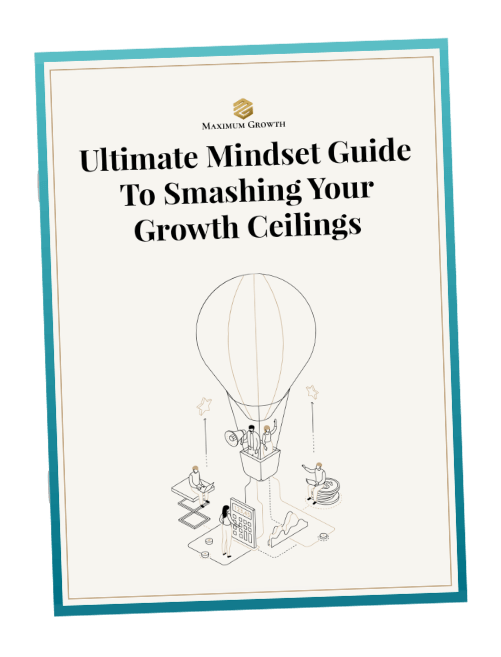Let’s delve into the fascinating world of sibling relationships, drawing inspiration from both psychology and philosophy to provide valuable insights for coaches who seek to understand their clients facing challenges in work and home life.
When I reflected on the Relationships Unveiled series and thought about the niches coaches go into, it was interesting that there are many parenting coaches and relationship coaches, but how many sibling coaches do you know?
I can’t think of one. Can you?
Yet this relationship is your first peer relationship, the one you spend the most time with, that you have known and know you the longest. With such a foundational relationship, let’s deep dive into this together.
In the realm of human psychology, sibling relationships have often been relegated to the sidelines, a lesser-explored facet of the intricate tapestry of human interactions.
Sigmund Freud himself granted siblings mere passing mentions in his extensive body of work.
I had to do some digging to find research on this topic and found recent decades have witnessed a profound awakening in the field as researchers begin to unveil the profound impact of siblings on one another’s lives.
Karen Gail Lewis, Ph.D., a sibling therapist of five decades, has recently authored ‘Sibling Therapy,’ an eye-opening work that delves into how sibling dynamics significantly shape personalities and destinies.
I know that, I have a complicated sibling dynamic. There was my older brother and I for 5.5 years. Then along came two younger siblings. But then I lived with my Dad, his new partner (AKA my new mumma bear) and brother full time. My mumma bear had a daughter who was 12 years older and was like a sister, friend, and mum all rolled into one.
During my teen years, my brother was staying with his girlfriend a lot and wasn’t home. My sister was out of home and so I spent my teen years as, what felt like, being an only child. This definitely was formative in my ability to go inward.
So it felt like lots of sibling relationships were coming and going.
Dr. Lewis beautifully unveils how early experiences and perceptions with our first companions lay the foundation for adult relationships, both at home and in the workplace.
The Sibling Crucible: A Laboratory of Life
Dr. Lewis believes that the sibling relationship is the crucible where individuals first learn to navigate the complex terrain of human interactions. It is during this formative period that children discover the art of conflict resolution, cooperation, negotiation, and competition.
These skills, etched into their psyches during sibling interactions, often resurface in their adult relationships. This echoes the timeless wisdom of the philosopher Aristotle, who remarked, “We are what we repeatedly do..” Indeed, our early sibling experiences shape the habits that govern our later relationships, both at home and at work.
Parental Echoes: Recreating Sibling Dynamics
Parents, whether consciously or not, tend to project their own sibling experiences onto their children. Those who enjoy harmonious sibling bonds may expect the same for their offspring, while those burdened with sibling conflicts may fear their children will tread a similar path.
Consequently, parents may inadvertently intensify normal sibling disagreements by intervening too hastily, inadvertently signalling to their children that they cannot resolve their issues independently.
Philosopher Friedrich Nietzsche, said, “He who fights with monsters should be careful lest he thereby become a monster.” AKA, you become what you condemn.
In their attempts to shield their children from the adversities they experience, parents may unknowingly perpetuate these very conflicts.
Sibling Dynamics in the Workplace
Sibling dynamics extend their tendrils into the professional arena as well. Research reveals that unresolved sibling issues from childhood can manifest as self-sabotage patterns in the workplace.
Neuroscientific studies have demonstrated that these patterns are deeply ingrained in the brain’s neural pathways, making them difficult to break free from without introspection and change in perspective. Luckily you have the Demartini Method, which does both.
As coaches, understanding these deeply rooted patterns is instrumental in helping clients navigate workplace challenges.
Sibling as ‘First Marriage’ and Relationship Choices
Dr. Lewis refers to the sibling relationship as a “first marriage.” It is within this initial bond that individuals learn to live intimately with peers of the same generation.
Philosophers like Simone de Beauvoir emphasized the importance of choice in relationships, and this extends to sibling dynamics.
Adults may find that they unknowingly replicate patterns from their ‘first marriage’ in their choice of romantic partners.
For instance, individuals who experienced abuse from a sibling may unconsciously gravitate towards abusive partners, echoing the philosopher George Santayana’s says, “Those who cannot remember the past are condemned to repeat it.”
Sibling Dynamics in Friendships
Our early experiences with siblings can reverberate through our choices in friendships. Children who feel inferior to their siblings may, in adulthood, be drawn to friends who assert dominance and make decisions on their behalf.
Understanding these dynamics can be vital for coaches working with clients who grapple with perceived toxic friendships, shedding light on the roots of these relationships.
The sibling relationship is a profound force that weaves through the tapestry of our lives. As a coach, armed with insights from both psychology and philosophy, can deeply understand their clients’ challenges, whether in the workplace or at home from a new lens.
Recognizing the echoes of sibling dynamics in adulthood equips you to guide your clients toward self-awareness, healing, and fulfilling relationships. With this knowledge, you can empower your clients to embrace their early life experiences and rewrite the scripts of their lives.


